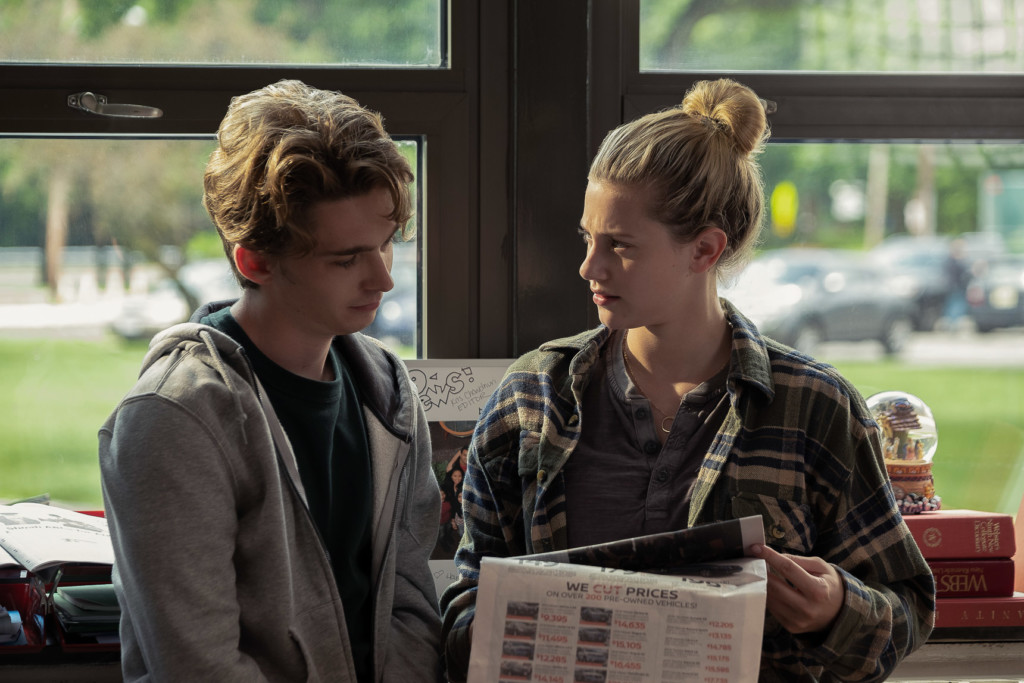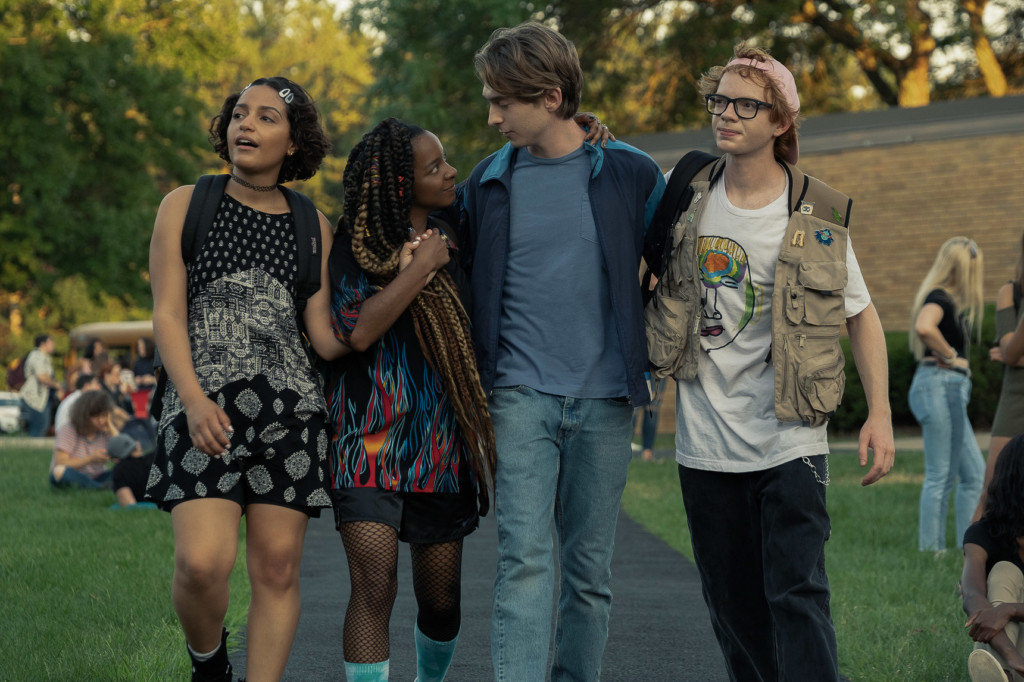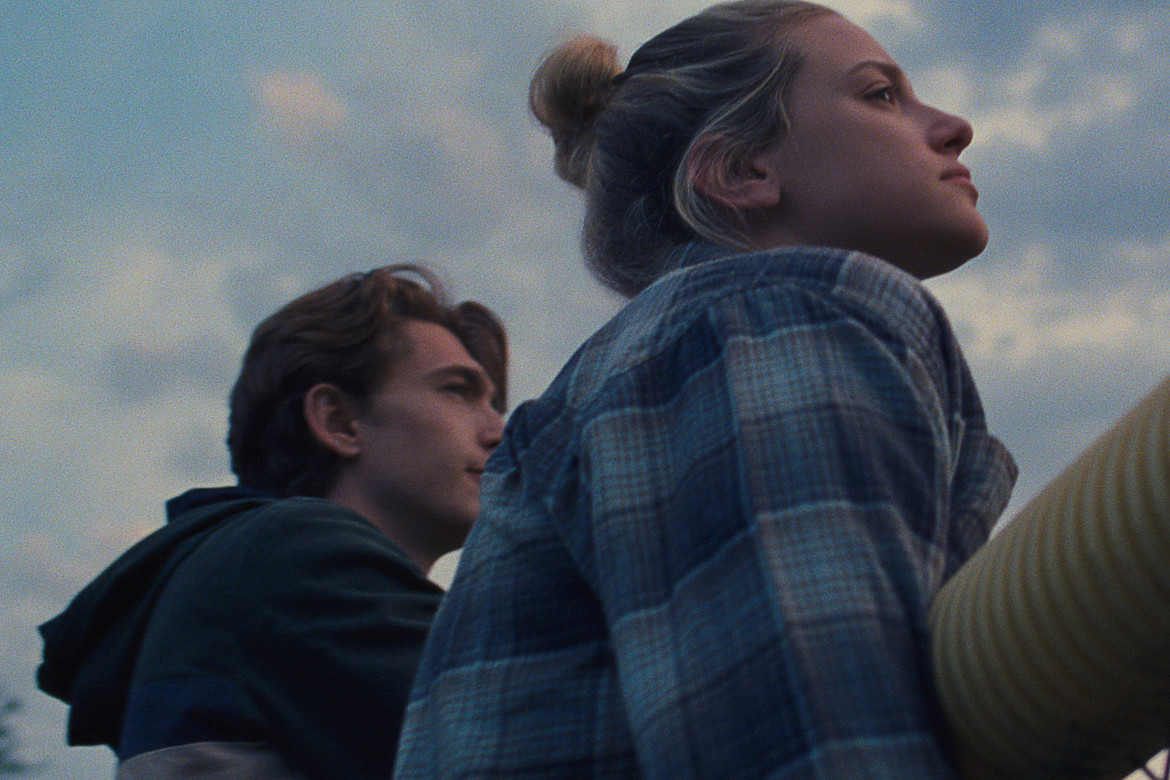Richard Tanne
Following up 2016’s well-received “Southside With You,” Tanne took on the task of adapting Sutherland’s “Our Chemical Hearts” for the screen after receiving the book from Reinhart and responding to it. Those who have read the book are sure to notice certain differences, however, Tanne did a tremendous job of taking the emotionally heavy source material and identifying a story that would best serve the screen.
How did you initially get involved with the movie?
For this particular movie, Lili actually sent me the book. She’d seen my first movie and felt I might respond to the material. She was looking for a writer or director to kind of partner up with and turn this into a movie. The book really drew me in, and I always wanted to make a movie set in high school and explore my memories and feelings and impressions at the time. But I expected to do it with an original idea, something that I came up with rather than adapting a book. I’ve never adapted anything before. I’ve written a lot of screenplays, but I’ve never adapted a book. There were so many connections between my life and the things that happened in the book. It was an irresistible opportunity to tell my story through Krystal’s story.

What was it like adapting the book into a script?
I fear that my answer is going to be very uninteresting, but it was a very fluid, intuitive process. I connected very deeply to some of the fundamental concerns of the book, Grace’s sort of existential funk, her depression. Without knowing it at the time, I was up and down with depression, my entire time in high school. I only know that now, all these years later, having dealt with mental health in a real way. I related to Henry’s sensitivity. One of the things that I find interesting about the movie and the book is that you have two people in Henry and Grace who were dealing with different kinds of pain, different levels of pain.
And look, Henry is a pretty privileged guy. He has a good family. They seem to have money. He seems to come from a good background. He’s never really experienced true tragedy directly. And then you have Grace, who is in a very different situation and is encountering real loss and real pain. But in Henry’s reality, what he’s going through with Grace isn’t any less real, it’s just different. It’s just different relative to who he is. The same thing goes for the characters of La and Cora. Cora is dealing with her sexuality, coming to terms with it. The relationship that they have, even though it is a smaller part of the movie, it’s a kind of counter-narrative to the romance between Henry and Grace, which is very conflicted and toxic, whereas their romance is kind of carefree—perfect—from the time they get together.
I thought it was important to kind of access the pain and the anguish relative to these different types—even the sister is going through her own sort of coming of age in her thirties, dealing with heartbreak and what comes from that. So, I knew that I wanted the story of the movie to focus on those dynamics and those ideas and those themes. I felt that I had something to say about those themes and those ideas. It was this mix of my own impressions. I was the editor-in-chief of my school paper. I was in a very bad car accident that mirrored almost exactly what Grace and Dom went through some years later, but I was still much younger when it happened.
I had a similar dynamic [and] became very much in love with someone. And that feeling was not exactly returned—that rollercoaster. So I thought if I could take my feelings and impressions from that time and infuse Krystal’s characters and stories with that, I would know how to tell the story. And that’s what I did.
I read that you opted to shoot on film versus digital, and I was hoping you could talk a little about your decision behind that.
It’s funny because when I was writing [the film], I had this really pretentious idea that well, celluloid has to go through a chemical process in order to be what it wants to be, what it’s meant to be. So, this is a movie about chemical processes. There’s something to connect there, but actually what it really came down to was growing up, being a teenager in the early 2000s and being adolescent in the late ’90s, every movie that I saw about young people that affected me was shot on 35mm film. That is the look of my youth and my coming of age when I think about movies. So, I really wanted to appropriate that imperfect beauty, the grain, the surprise that comes along with having to photochemically reproduce an image. I felt that that, as cheesy as it sounds, really fit nicely with the Neruda poem and the idea of loving someone or appreciating or understanding somebody for their flaws and for who they actually are: to have that rawness and the look and the image, as well.

Given everything that’s going on right now, could you briefly explain the differences in releasing a film during the Covid-19 pandemic, as opposed to the typical film release? How different is the experience? And how have you adapted to the situation?
It’s a really interesting question. And I have been thinking about it a lot the last week. I’ve only made one other movie, but in the lead up to the release of that movie, myself and the lead actors were on a publicity tour around the country showing the movie and doing screenings and Q&As and obviously having a press junket that was in person. There was a sense that we were on the train that was leading towards release—that was destined towards release.
This is as if there’s like some movie that’s coming out that I know I had a part of and it’s going to happen somewhere, sometime, some way, but I don’t know when, I don’t know how, and it might just suddenly exist. I have to say, I kind of like it.
I mean, I wish it weren’t happening. I wish what was happening in the world [wasn’t] happening, but it has shown me the benefit of kind of detaching from the release of something that you’ve made a little bit. I really haven’t been thinking too much about it except doing the interviews that we’ve had to do. And I say that with gratitude because I think I’d probably be very anxious if I was thinking about [it]. I was very anxious the last time around. I’ve just been focused on other things and writing, and that sense of detachment has let me focus on other things, which is kind of nice.
What is the main message of “Chemical Hearts” to you? And if there was only one thing that the audience could take away from this movie, what would you want it to be?
So, you had to go and ask me the hardest question imaginable. I’ll preface the answer by saying that I didn’t go into it—adapting the book and then making it—thinking about what the message would be. Because when I’m doing something like this, I’m following an intuition, I’m following an instinct that I was able to latch onto. Regardless of what you thought about the movie, I knew that, for me, I could get in, I could access it.
There were enough connections to be made between my own life and my own experiences. And it meant something to me. So that feeling is something that I’m following as I make the movie, that feeling of melancholy and sort of coming of age and crossing the threshold from adolescence into adulthood, through pain and loss and heartbreak.
I related to that, and I wanted to bottle that up. Everything that I did was driven by trying to create that and create a sense of truth about that, for better or for worse.
But having said that what a lot of people have been taking away from the movie, and I think what I ultimately take away from it is that not every romance is supposed to be a love story. I don’t think of this as a love story. I think this is a failed love story. It’s a failure, because it’s two people who want each other for the wrong reasons. And who knows if Grace and Henry, at a different time in their lives might have been able to make a go of it, but they wanted it for the wrong reasons at that stage in their lives. And it didn’t work out, but it doesn’t make the relationship any less meaningful than some future relationship that they’ll have, which will work out. In fact, it shapes who they are going into the next relationship. And I thought it was important to tell a story about failing and having loss and still being able to pick up the pieces and move on afterward.
“Chemical Hearts” is available to stream on Amazon Prime Video.
The Q&As have been edited for length and clarity.
